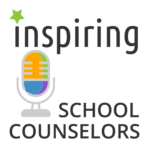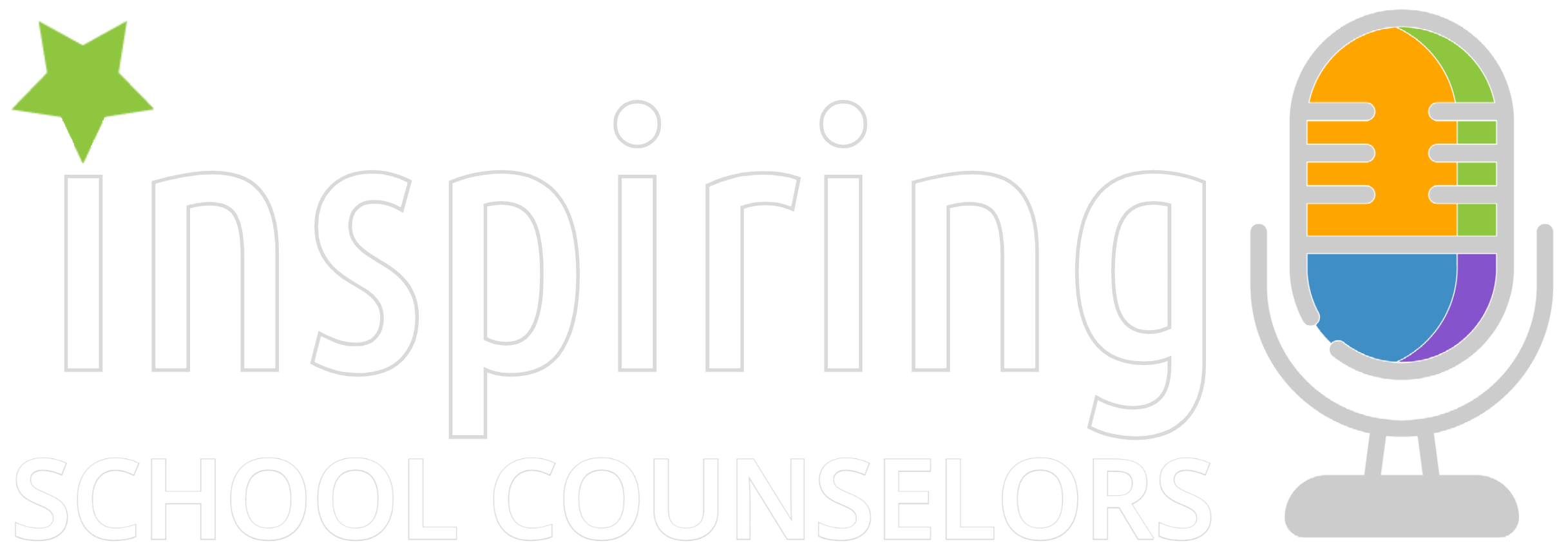If you’ve ever thought, ‘I wonder how well mindfulness techniques actually work in the classroom,’ listen in this week as Oklahoma School Counselor Specialist Sarah Kirk shares two stories of the ways in which mindfulness has benefited students AND teachers.

This Week's Storyteller
Sarah Kirk is a National Board Certified Counselor and the School Counselor Specialist at the Oklahoma State Department of Education. Before this role, she was a School Counselor for nine years at two elementary schools and currently serves on the Board of Directors for ASCA. In 2019, her School Counseling Program became a Recognized ASCA Model Program (RAMP). Sarah was Oklahoma’s 2018 School Counselor of the Year and a 2019 National School Counselor of the Year Finalist. She is currently pursuing a PhD in Counselor Education and Supervision.
For practical, real-life tips for school counselors, be sure to check out Sarah’s article Mindfulness for School Counselor Care.

Share YOUR Story!
 Do you have a touching or funny (or both) story about school counseling? We want to hear it! Drop us a line or record your story with our online Sound Booth.
Do you have a touching or funny (or both) story about school counseling? We want to hear it! Drop us a line or record your story with our online Sound Booth.
If you have questions or need help, let us know!
Subscribe
Encouraging Words for School Counselors is also available on these podcast apps and others. If you can’t find the podcast on your favorite app, let us know and we’ll make sure we get there. If you prefer to listen in your browser, visit https://inspiresuccess.org/podcast every week for a new episode. For new episode notifications and more, follow Inspire Success on Facebook, Instagram, or Twitter.
Transcript
Matt Fleck:
Hi, everyone! Welcome back to another week of the Encouraging Words for School Counselors podcast. I’m Matt Fleck with Inspire Success, in Colorado this week soaking up the beauty of the snow-covered Rocky Mountains and sending warm wishes your way.
Oklahoma Department of Education School Counselor Specialist Sarah Kirk shares two great stories with us this week about the impressive and measurable impact that mindfulness techniques can have on students and overall classroom management.
Sarah worked for nine years as a school counselor in two elementary schools. At one of those schools, she encountered a kindergarten student who required quite a bit of her time.
Sarah Kirk:
He had some difficulties in the classroom. He had gone to pre-K at our school as well, but in kindergarten he signed up for yoga and mindfulness club and he came and he did wonderful. And he just joined in with the rest of the students. And it was interesting because that was not what we saw in the classroom. And so later I met with this teacher and we started talking about how we could carry over some of the things that were working in that club, but it just wasn’t, it wasn’t communicating the same way. It wasn’t carrying over the same way.
And so I just decided to ask him. I was like, what’s going on here? That, you know, you love this and you do these skills and you’ve, I know you have the tools. I always talk to my students about having tools in their tool belt. I know you have the tools.
And he looked at me and he said, “I know you always tell me about my tools, but my tools are in your office, Ms. Kirk!”
I just started laughing. I was like, “Well, what can we do to make sure you take those tools with you?” And so we talked it through and we were able to find ways. We had to use his language and of course they were not real tools. This was an invisible tool belt, but we talked about how he could make sure that tool belt went with him.
Matt:
Using imaging such as a “toolbelt” to help students understand and use mindfulness or counseling techniques is a great way to make concepts and ideas more concrete for students.
Sarah:
By this time it was the end of kindergarten, so we were really focusing on the transition to first grade. And I always, anytime I saw him in first grade, I always told him, “I think you took your toolbelt with you,” because I did not see him, um, the same way I did in pre-K and kindergarten. I saw him in the hallway and at lunch and recess and enjoying himself and making great decisions and doing a great job. And so, um, that was one way that I just saw some of these worlds colliding in a comprehensive school counseling program. It’s a really neat way to see some of these things we implement, not really knowing what the impact might be, but just how big it can be.
Matt:
That student is now in 5th grade and continues to do well. When Sarah left that school to go to her second school, she decided to get more formal training on yoga and mindfulness so she enrolled in a program called Child Light in Dover, New Hampshire. She then introduced those same concepts to the teachers at her new school by sharing the story of the successes she had with the kindergarten student from her first school.
Sarah:
And it always helped me sell it to students and teachers. But specifically I had a second grade teacher I worked with and she, the first semester, had a very, very rough time. She was pretty new and she had a lot of big behaviors that she didn’t have the skills to manage. And she knew she didn’t. She asked for a lot of help and I really appreciated her. Um, but she just had a really, really tough semester. And the behavior referrals reflected that. When I compared my data across the school, that one classroom had behavior referrals through the roof. And I had talked to her a little bit about mindfulness and how I had implemented it before.
At the winter break, she and I worked together quite a bit and we decided we were going to start every day with Mindful Moments when we came back in the new year. She didn’t feel comfortable doing that at first, so I told her I would happily come and I went to her classroom every morning. It was only five minutes. So it wasn’t a big chunk of my time. And I used scripted Mindful Moments, so I didn’t have to do a lot to prepare. But we started each day like that because her class was very active and very loud and very – they just came in firing – and it was hard to ever get them to calm down. So I thought, man, what a great idea to try this Mindful Moment and we did. And it’s some of my most favorite data to share because it’s so obvious when you look at the graph of the behavior referrals before we started doing that and then the behavior referrals after that. And it was such an easy intervention to implement!
Matt:
Sarah did this FOR the teacher for the first month, then the teacher took it on herself, and as Sarah explains, it worked beautifully.
Sarah:
That’s the cool thing about mindfulness. You can see at work in so many different ways. Sometimes it’s one-on-one, sometimes it’s whole class settings and it’s pretty easy. And the cool part is the teacher, the counselor – whoever the adult is that’s interacting with it – is feeling better at the same time, too. To be quite honest, I was sad when that month was over and I wasn’t the one implementing the Mindful Moment anymore because it started my day so peacefully and so calmly, and taking those deep breaths. And of course we can do that on our own, but we don’t often remember to, or take the time to. And so it’s pretty neat and pretty powerful how much it can impact everyone involved.
Matt:
You can read more about Sarah’s work and a great article she wrote on mindfulness titled Mindfulness for School Counselor Care, with very practical, real-life tips for school counselors at inspiresuccess.org/podcast.
At that same website you can listen to previous podcasts and subscribe to the podcast by clicking on your favorite podcast app. And at the top of the page – click on where it says Sound Booth – and record a quick story of your own.
Until next week, stay warm and think about these words from Sarah, “Allow yourself a moment to stop. Be still. Soak in what you just heard…and think about one thing you can do to cultivate your personal mindfulness practice. It does not have to be a huge, life-altering change. It can be something small. Remember, mindfulness is always available, always free of charge, and always invigorative.”
Take care and see you next week.
